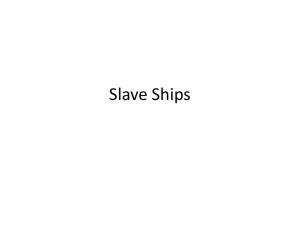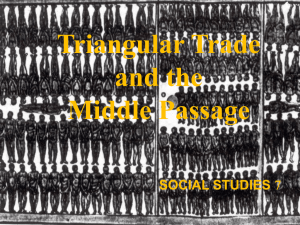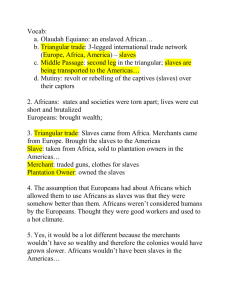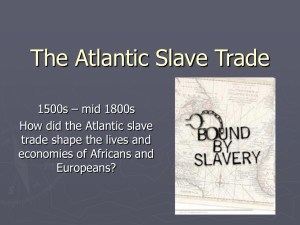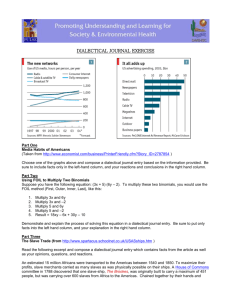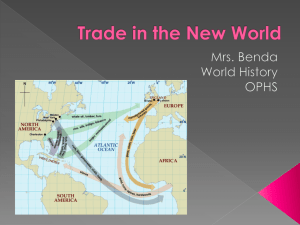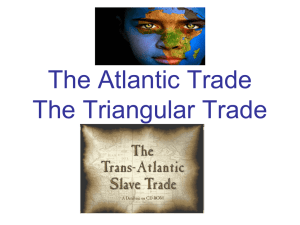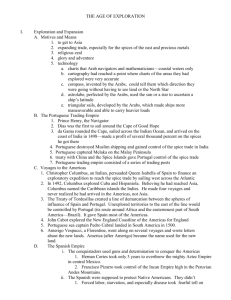2.7 Trans-Atlantic Slave Trade
advertisement
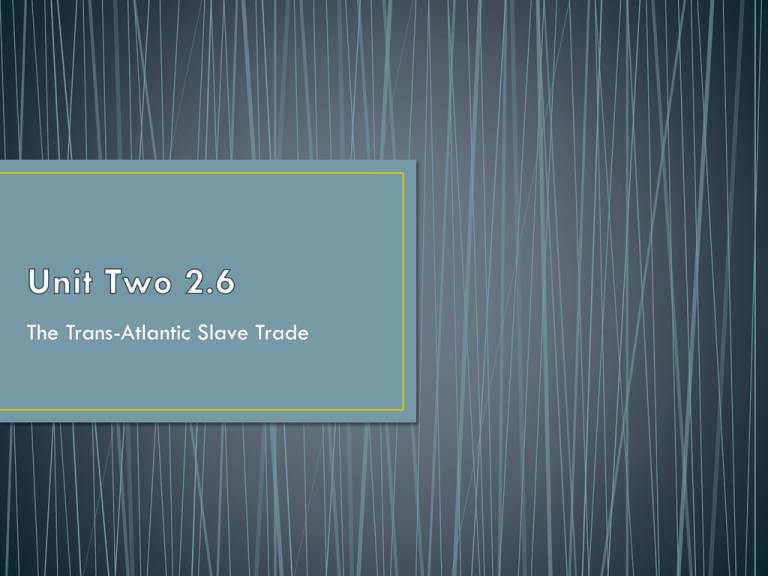
The Trans-Atlantic Slave Trade • What is a colony? • What was the Spanish system of labor called in the Americas? • Describe the system above? • Where did the Spanish people set up their settlements? The French? The English? • If Mr. Sliwa won the lottery, what would he do with the money? As of 2012, there have been 3 babies born at Disneyland. Seriously….In the park. There is no confirmation on whether or not they were named “Mickey.” • Triangular Trade – 3 pronged international trade network. • Merchant ships brought goods from Europe to Africa. • Guns • Alcohol • Clothes • • • • Africa would ship People and Goods to the Americas. Also known as the “Middle Passage.” Slaves were transported to the Americas from Africa. Slaves were picked up from forts in Africa after having been traded for or captured. • Slaves were then transported on large ships across the Atlantic. • The Americas would send sugar, molasses, cotton, rum, tobacco, and other plantation products. • The cycle would then start all over again. • Positives: • • • • European countries made a lot of money. Cultural Diffusion. International Relations. Helped establish new countries. • Negatives: • …Slavery • Ships could be lost at sea • Promoted Racism • Trade helped cities grow. • The slave trade, especially, helped cities in North America grow and make large sums of money. • For merchants, the middle passage was a necessity. For slaves, it was a horror story. • Men were treated as goods, rather than humans. • Most Africans were taken from inland villages. • After being enslaved, they were forced to march to the coastal ports. • Men, women, and children are bound together with chains and forced to WALK distances of up to 1,000 miles. • That is the same distance as walking from Northern High School to New York City and back. Around 90% of all slaves were taken or picked up on the west coast of Africa in countries like Ghana and the Ivory Coast. - Slaves were crammed below deck in chains. - The journey to the Americas lasted anywhere from 3 weeks to 3 months. - Ships also faced risks such as storms or attacks by pirates. • Around half of the slaves died each trip from starvation, Disease, and gross mistreatment. • Sadly, many Africans killed themselves on the ships to avoid enslavement in the “New World.” • Many African cities, villages, and societies fell apart due to the slave trade while American cities/colonies prospered. • About 2,000 slaves were sent to the Americas every year in the 1500’s. • By the 1700’s, that number grew to about 80,000 per year. • By the 1800’s, 11 million slaves had reached the Americas. • Another 2 million died because of the slave trade. JOHN GREEN – Slave Trade
